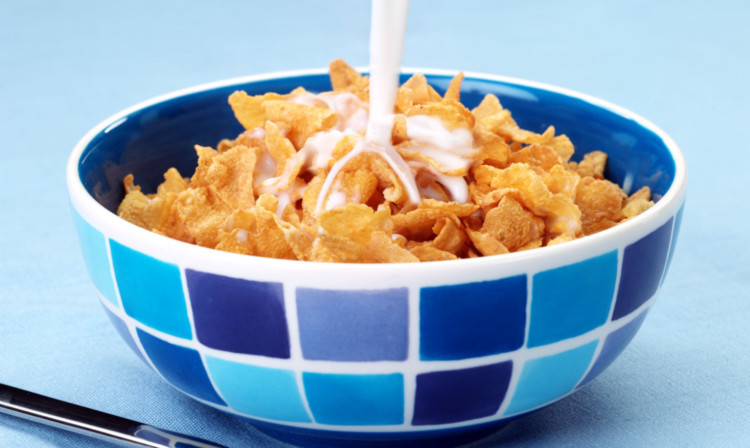
Ukraine crisis could mean a shortage in every-day household items.
The strain in Ukraine is set to cause pain on your breakfast table.
Never mind a new Cold War the world could be about to descend into a cornflakes crisis.
Market experts believe the cost of food staples such as eggs, cooking oil and even cornflakes could shoot up as global markets react to a Russian invasion of Crimea.
Ukraine produces as much corn as the rest of the European Union put together and prices have spiked in the last week as a result of the ongoing crisis.
Analysts have told The Sunday Post that prices at the checkout may rise during 2014, especially if the uncertainty rumbles on into next year.
Alex Waugh of the National Association of British and Irish Millers said: “The biggest concern isn’t with the immediate impact, but what the farmers will plant, harvest and export from 2014.
“Depending on how long this conflict carries on, it could have a serious impact on production.
“While the UK doesn’t import too much grain from Ukraine, the market prices will rise internationally because of the issue.”
Those planning on switching to fry-ups might also have to think twice.
Ukraine is also is a major global exporter of rapeseed oil, a key component of some cooking oils. It also is a huge producer of grains used in animal feed.
“Some products are very sensitive to grain prices chicken and eggs, for example because poultry feed is made up of grains. That has a pretty immediate impact on the farmers’ cost base and the money they need to sustain their businesses.
“If you look back at when prices of grain have gone up a lot in the past, consumer prices do respond but it does take a while.”
Jack Watts, cereals market expert at the Agriculture and Horticulture Development Board, agrees.
He said: “While it’s too short-term to currently impact on prices on the shop floor, should the issues continue into this year’s harvest then that is when we could see an impact.
“Right now, export contracts are in place and so far deliveries seem to be flowing reasonably well and without too much fuss.
“The uncertainty comes when international shippers look to begin new contracts and are cautious about trusting Ukraine with new business.
“The severe weakening in Ukrainian currency means grains are much more expensive to produce. Farmers being able to find the money they would need has also been called into question.”
Most of Ukraine’s grain is exported through Crimea, the centre of the dispute. A referendum is taking place there today to vote on Russian annexation of the area.
Jack continued: “The market is looking at what is going to happen in the referendum and what sort of sanctions might be put in place.”
Ukraine is expected to export 18.5 million tons of corn and 10 million tons of wheat in the current marketing season.
How previous global shortages have affected everyone
1939 During The Second World War, bananas disappeared from shelves as any imports ended up at the bottom of the Atlantic thanks to a U Boat-launched torpedo.
Britons instead had to make do with egg powder, a lump of lard and some marmalade, thanks to strict rationing.
The return of bananas to shelves was heralded as an end to the austerity years.
1975 An unexpected frost in Brazil was so severe that half of all coffee trees in the country died.
Coffee prices around the world shot up as supplies of the second-most traded item in the world aside from oil dried up.
The shortage was acutely felt in East Germany and caused a financial crash in the country, which is now called The Coffee Crisis.
1978 Bread strike. The Prime Minister, James Callaghan, said there was “no chaos”, but a strike by bakers suddenly meant a loaf became a prized item in the UK.
Bakeries were forced to impose bread rationing on customers as ordinary punters turned to baking their own loaves. The price of a loaf in certain shops quadrupled.
1973 Toilet Paper. An embargo caused a worldwide shortage in crude oil, which led to queues at the petrol pumps.
At the height of the crisis, US TV chat show host Johnny Carson, whose show reached a huge audience at the time, made a joke on air about how the oil crisis might lead to a scarcity of toilet paper.
Although completely untrue, it led to toilet paper running out in shops and unscrupulous black market paper pirates charging $3 per roll.
By Murray Scougall and Stevie Gallacher

Enjoy the convenience of having The Sunday Post delivered as a digital ePaper straight to your smartphone, tablet or computer.
Subscribe for only £5.49 a month and enjoy all the benefits of the printed paper as a digital replica.
Subscribe